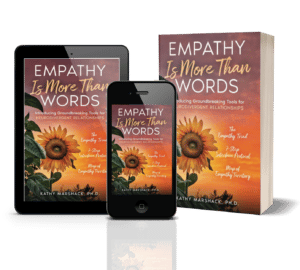
That’s the life many of my Neuro-Typical clients live. They often describe their relationships with their Autistic loved ones as feeling one-sided. It’s odd isn’t it that our “Aspies” don’t feel the same way? As long as their needs are met, they don’t seem to notice that we’re lonesome, sad, or frustrated. Worse, when we try to explain how we feel, they draw a blank look or get defensive. Once again it’s one-sided…and not in our favor.
So how do you know if you’re in a one-sided relationship?
- You have to initiate conversation.
- Your partner takes, without giving.
- You give up your friends for his or quit socializing altogether.
- You apologize for things you shouldn’t have to.
- You’re always soothing ruffled feathers.
- You justify his behavior to friends and family.
- You never feel peace, but you’re always walking on eggshells.
- You’re made to feel like you’re a burden or an afterthought.
- Your loving gestures aren’t reciprocated.
- You feel alone.
Feeling like your relationship is one-sided doesn’t necessarily mean your partner doesn’t care about you, in his or her own way. Lack of empathy is the reason for this one-sidedness, but that reason isn’t comforting is it? Instead we need tools for interacting with our “Aspies,” since they aren’t wired to connect. We also need tools to keep from going crazy over these one-way relationships.
One of the necessary tools is our Asperger Syndrome: Partners & Family of Adults with ASD group, where you can at least connect with others who get it. Support is essential to your mental health. But there are other more direct tools too. There are ways to problem solve with your ASD loved ones, even if their default mode is one-way.
If you prefer one-on-one counseling, I offer online therapy if that works best for your busy schedule. Please reach out for help. You are not alone.




It’s 9/10 for my relationship. Yes, I feel totally alone… and COVID-19 has made it 10 times worse.
Interesting list- in recent years because of my need for help with daily chores (health reasons), he does a lot more, even without being asked anymore. His love language is acts of service, so that’s probably why!
But, still my tally is 7-8/10.
It’s helpful to see the list to help me realize that these are specific to any one-sided relationship. Helpful, Dr Kathy😊
What about being unwilling or unable to apologize for anything? Is that another sign that should be included on that list? I don’t think he’s ever apologized, but for a couple of days after an incident of really hurting my feelings, he’ll do a few little things without being asked. Often these little actions are ones I’ve asked him to do in the past, but he passive-aggressively just hasn’t done. He will occasionally apologize to others, but never to me. Whether he has literally or figuratively stepped on my toes, he just won’t say he’s sorry!
Yes it is very common for people on the Autism Spectrum to avoid apologizing. They equate apologizing with being wrong or bad. Furthermore, if they feel that their intentions were good, to apologize is to accept blame when they don’t deserve it. NTs on the other hand, apologize to help with relationship repair. Whether intended or not, if we have caused another person to be hurt or harmed in some way, we apologize. We even apologize when the other person is mistaken. NTs do not believe an apology is a sign of weakness, nor that they are bad. Rather, an apology is a way to keep a strong connection with a loved one. Because Autists are transactional, they get stuck and unable to apologize because a transaction is a win/lose proposition. NTs engage in win/wind interactions. Thus an apology furthers the interaction and moves the parties toward a win/win conversation.